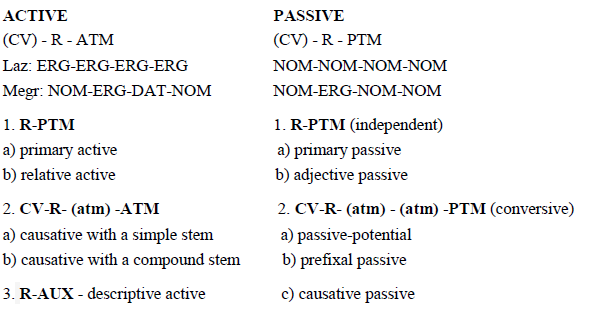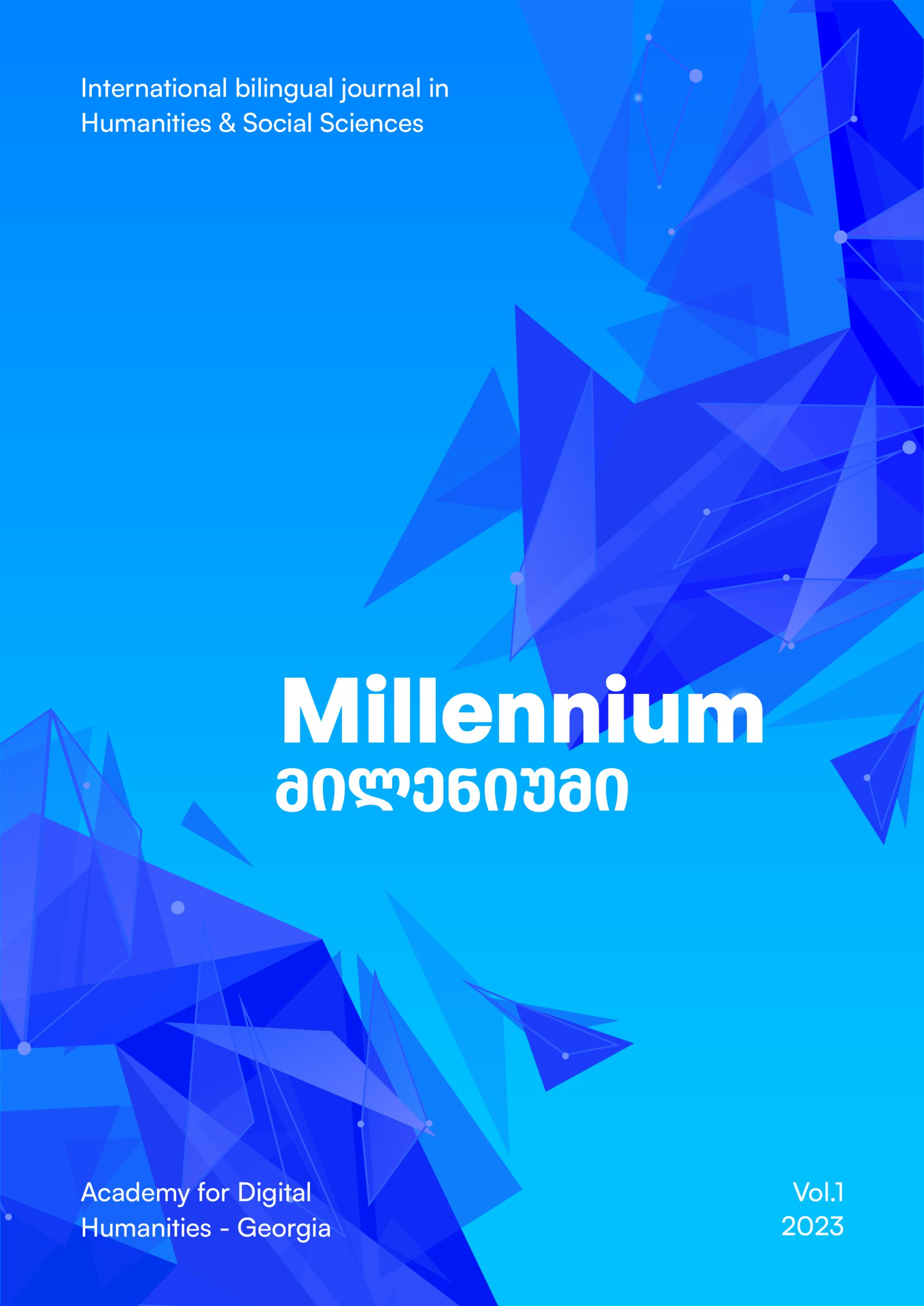The Grammatical Category of Voice in Megrelian and Laz
Main Article Content
Abstract
Verbal voice is topical not only from the Kartvelian but also from a general linguistics viewpoint. It is discussed differently in the European and the Georgian linguistic literature. In Georgian, e.g., voice is considered as a lexical-grammatical (A. Shanidze), morphological (A. Chikobava), syntactic-morphological (B. Jorbenadze) or semantical (D. Melikishvili) category. The issue of establishing systems of opposition in the category of voice is also controversial and topical. Such unresolved problems related to verbal voice require a new understanding of the category and approaches that take into account the specifics of the given research language.
In Megrelian-Laz, voice is considered as a grammatical category and according to their morphosyntactic behaviour, two voices are distinguished:

The type R-AUX as in avǯiluġi ikips ‘does hunting (= hunts)’ is characteristic only of Laz. It is created as an analogy to Turkish formations (avcılık etmek).
The present classification is based on a structured database of verb forms created by the author, which comprises up to 10,000 entries. Directly transitive, indirectly transitive, and intransitive forms of active semantics are grouped together in the database (Laz: o-xvec’-ap-s ‘begs’, Megr: u-per-u-an-s ‘is affectionate to sb/sth’, Zan: ġarġal-ap-s / ragad-an-s ‘speaks’):

According to their formation, two types of passives can be distinguished in Megrelian-Laz: independent and conversive.
A passive is independent if it is not derived from an active stem via conversion. However, according to the nature of passive, its formation can also be secondary; in particular, in most forms it is based on nominal stems (cf. Zan xomu ‘dried’ > xomu-u-n ‘gets dry’, Laz č’itoni ‘reddish’ > Megr. č’iton-d-u-n ‘gets reddish’). This is why the present author strictly differentiates voice and transitivity. From the category of voice, she separates reflexives of more archaic formation (e.g. i-gurgin-u-n ‘it thunders’, i-rdgabal-u-n ‘talks a lot of rubbish’) which often cause confusion.
The typological analysis of Zan verbal forms confirms that, structurally, Megrelian-Laz and Georgian belong to the same type although the formal characteristics of the voice category developed independently in Zan. The patterns can even be different between Megrelian and Laz, but in most cases, content and grammatical form are in complete harmony with each other in Zan. The morphology of Megrelian and Laz is much more regular than that of Svan and Georgian.
Despite the high degree of correspondences, grammatical voice cannot be regarded only as a lexical property of a given verb since the verbal voices do not include all realisable forms in Megrelian-Laz. Voice permits the classification of verbs and their division into two categories only according to grammatical (or morphosyntactical) properties.
